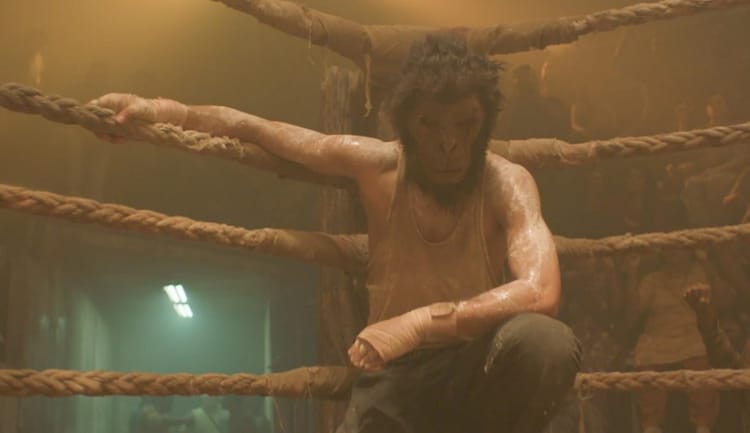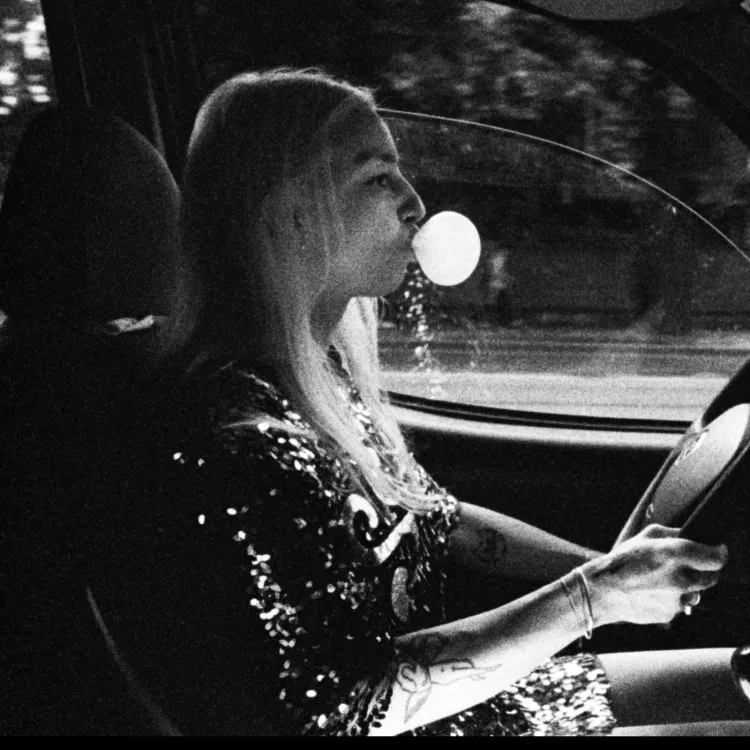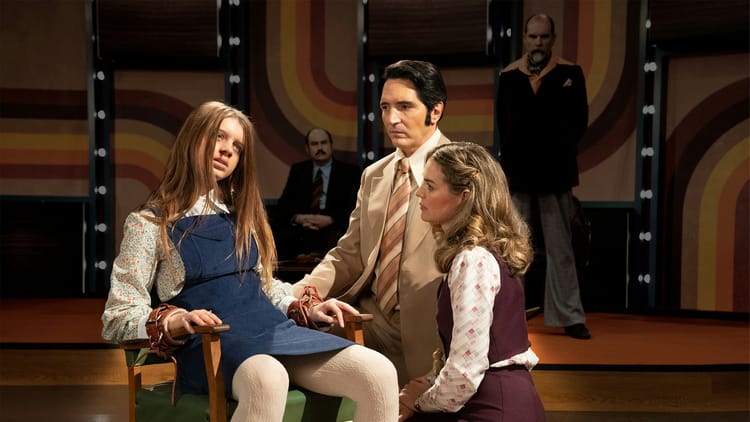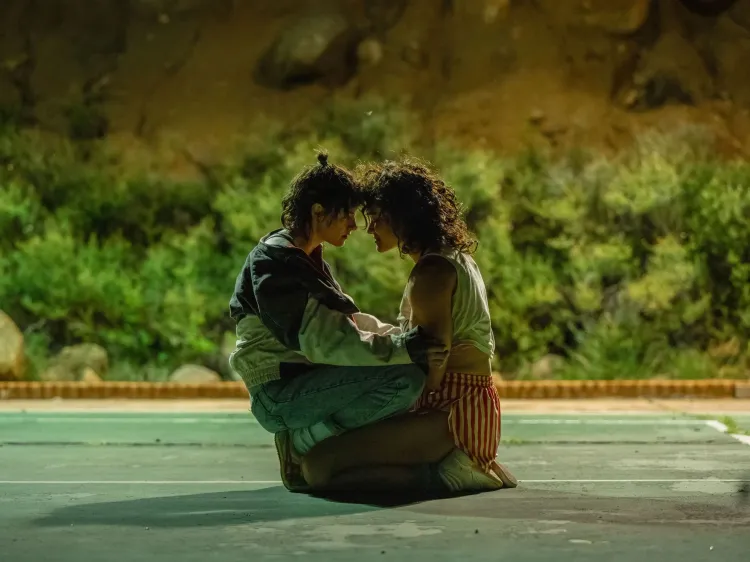The Tragedy of Macbeth

There's classics, and then there's Classics, and then CLASSICS, and then there's Shakespeare. This isn't a ranking of quality. I'm just pointing out that there's stories everyone knows, and there's stories everybody's seen done differently, and there's stories everybody has a different opinion on.
Shakespeare's most famous works, in particular "Macbeth", places in all three categories. That means if you're going to film "Macbeth", you better have an angle. You don't want to be recreating a story everyone knows. You want to put your own twist on it, to find your own center, and have the rest of your retelling spin out from that center.
Joel Coen could have easily made the core of his "Macbeth" its leading actors. Denzel Washington as Macbeth? That's more than enough. Frances McDormand as Lady Macbeth? That's overkill. That's half your tickets sold. That's two of America's best actors, operating at their peaks, playing two of the most celebrated parts in Shakespeare's entire canon. But to stop there is Oscar bait. That's a movie limited to performances, which isn't necessarily bad when the performers are this good.
Occasionally Washington's lines slip under the weight of Shakespeare's pentameter. But what he lacks in verbosity, he makes up with his physicality. As his Macbeth rises and falls, the way Washington literally carries himself evolves. By the end of the movie, he is a hulk, staggering across his castle, hardly the skulking man, cast in shadow from the film's beginnings. McDormand is better with Shakespeare's language, and also like Washington, is making active choices. The anger of her Lady Macbeth is particular to her performance, one enraged by the weakness of her husband, who lacks the fortitude to lift them from their status. And outside of the Macbeths, Kathryn Hunter gives a truly haunting performance as all three of the witches, occupied within her body. Her version of the iconic witches, broiling their ingredients over the cauldron, contorts across the screen, her voice violently swinging between registers. Shakespeare has no shortage of idiosyncratic iconic characters, like Caliban or Puck, and Kathryn Hunter is more than up for the challenge.
Still, it takes more than good performances to warrant a couple million on a new movie of an old play, to make it appear as more than a vanity project on the part of its actors.
And that's where Coen's vision comes into play. Every frame is meticulously planned, its set full of sharp angular lines, composed of stark structures, that tower over their characters. When their silhouettes are not being swallowed by monoliths, they are engulfed in shadow, hiding in the shadows of a pillar. The light strikes every actor's face perfectly, the black-white contrast highlighting their grimaces, their sneers, their deception. Not a single shot is wasted; every moment is visually arresting, demanding the eye's attention.
The film is as efficient in its storytelling as it is in its cinematography. Joel Coen knows most of his audience already know the story of the Scottish play. Even though "Macbeth" is one of Shakespeare's shortest plays, Coen still edits it into a lean 100 minutes. It propels itself forward with every scene, all bolstered by the economy and clarity of Washington and McDormand's acting choices.
That's what this version of "Macbeth" is about. It's about choices. It's about the actions of Macbeth and Lady Macbeth. It's about Washington and McDormand's explorations within these titanic characters. It's about Bruce Delbonnel's framing in the cinematography, the details in Stefan Dechant's production design, Joel Coen's decisions as its director. And some of those choices aren't going to make everyone happy. There are many themes in "Macbeth", and Coen chooses to focus on the search for power, at the cost of others. The starkness of the set may be distracting for some. Coen's interpretation of moments like the dagger appearing before Macbeth or the identity of the third murderer may upset Shakespeare purists.
But those are the choices he made. And in a film like this, with an auteur like Coen, I want those choices to surprise me. I don't want to watch a version of "Macbeth" that makes all the same decisions I would make. In a story I already know, I want its retelling to give me something I did not expect. And with its imposing visuals, its captivating cast, and some of the best use of CGI I've ever seen, "The Tragedy of Macbeth" constantly surprises.




